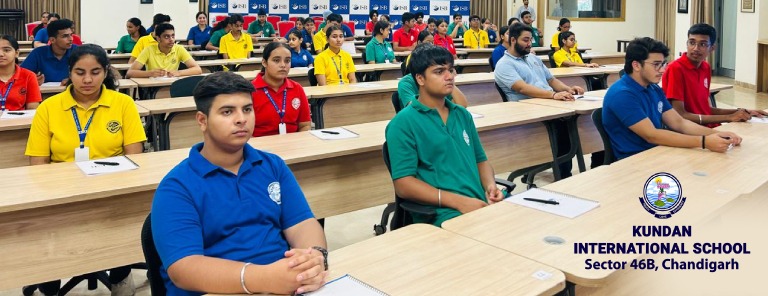At Kundan International School the Best School in Chandigarh believes that education goes beyond just absorbing information—it’s about ensuring students retain what they’ve learned and apply it effectively, especially during exams. Here are three strategies that can significantly enhance learning retention and lead to better exam performance.
Active Learning Techniques
Passive learning, where students merely listen to lectures or read textbooks, often leads to quick forgetting. Active learning, on the other hand, engages students in the process, making retention much more effective. Techniques such as group discussions, problem-solving activities, and teaching peers can transform the learning experience.
For instance, when students explain a concept to their peers, they reinforce their understanding and clarify any doubts. This process of articulation not only helps in retention but also in developing critical thinking skills. Incorporating activities like quizzes, debates, and role-playing in the classroom can stimulate curiosity and keep students engaged, making the learning process dynamic and memorable.
Spaced Repetition
The human brain tends to forget information if it isn’t reviewed periodically. Spaced repetition is a scientifically proven technique that involves revisiting information at gradually increasing intervals. This method leverages the psychological spacing effect, ensuring that students remember what they learn for longer periods.
At Kundan International School, encouraging students to create a revision schedule based on spaced repetition can make a significant difference. For example, after learning a new concept, students should review it the next day, then a few days later, and again a week later. This pattern helps to cement the knowledge, making it easier to recall during exams.
Mind Mapping and Visualization
Visual aids can be powerful tools for improving learning retention. Mind maps, which are visual representations of information, allow students to organize and structure their thoughts in a way that makes the content easier to understand and remember. Visualization techniques, such as creating diagrams, charts, or even mental images, can also help students recall complex information more easily.
For example, in subjects like history or science, students can use mind maps to connect events, concepts, and ideas, making it easier to see the bigger picture. This not only aids in retaining information but also helps in developing analytical skills, which are crucial for exam success.
Conclusion
Implementing these strategies at one of the Best CBSE School in Chandigarh, Kundan International School can significantly improve students’ learning retention, setting them up for better exam performance. Active learning engages students deeply with the material, spaced repetition ensures long-term retention, and mind mapping helps visualize and connect ideas effectively. Together, these methods create a robust learning environment that empowers students to excel academically.
By adopting these techniques, we can ensure that our students are not just prepared for their exams, but are also equipped with the skills and knowledge that will serve them well beyond the classroom.
